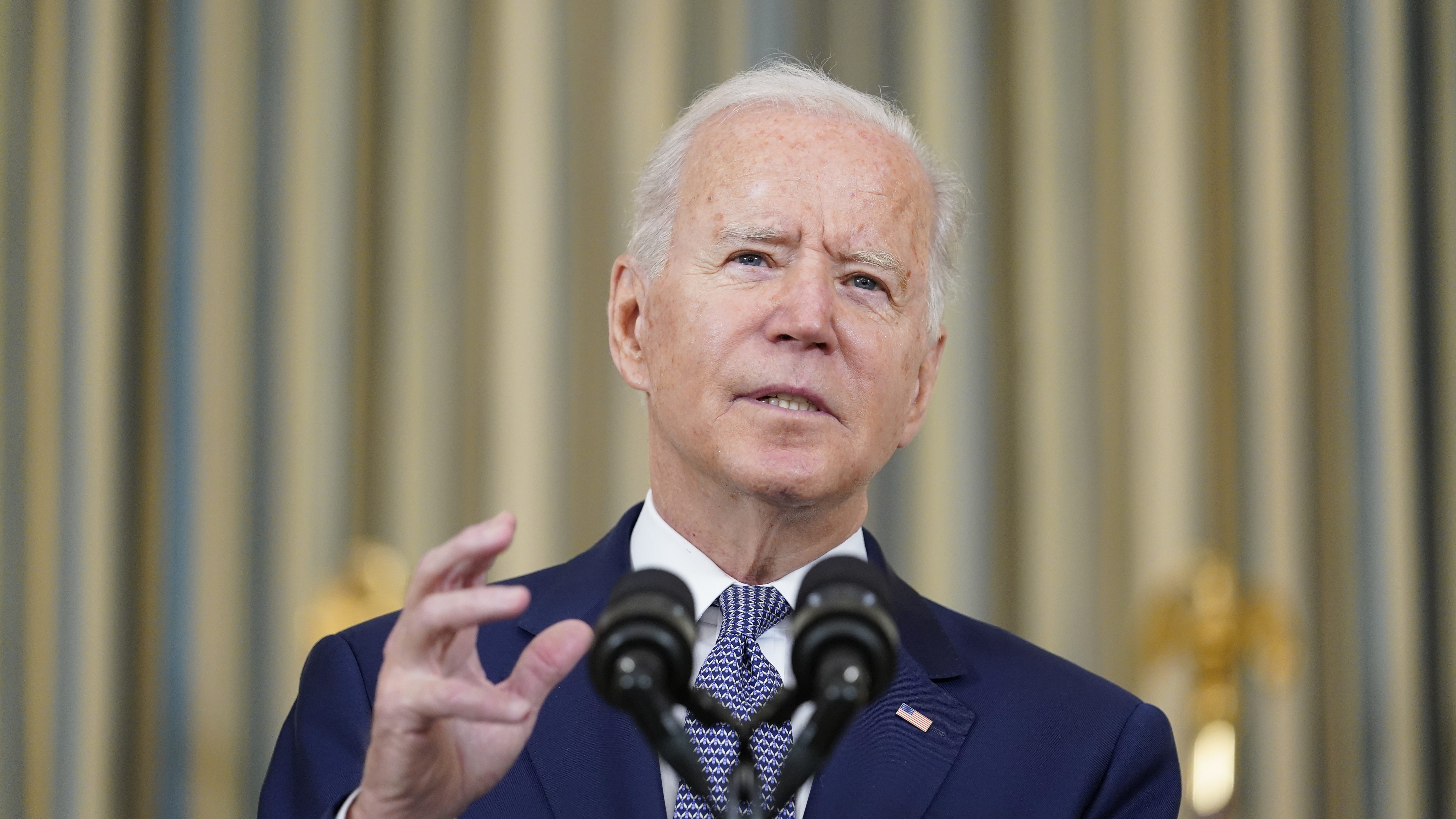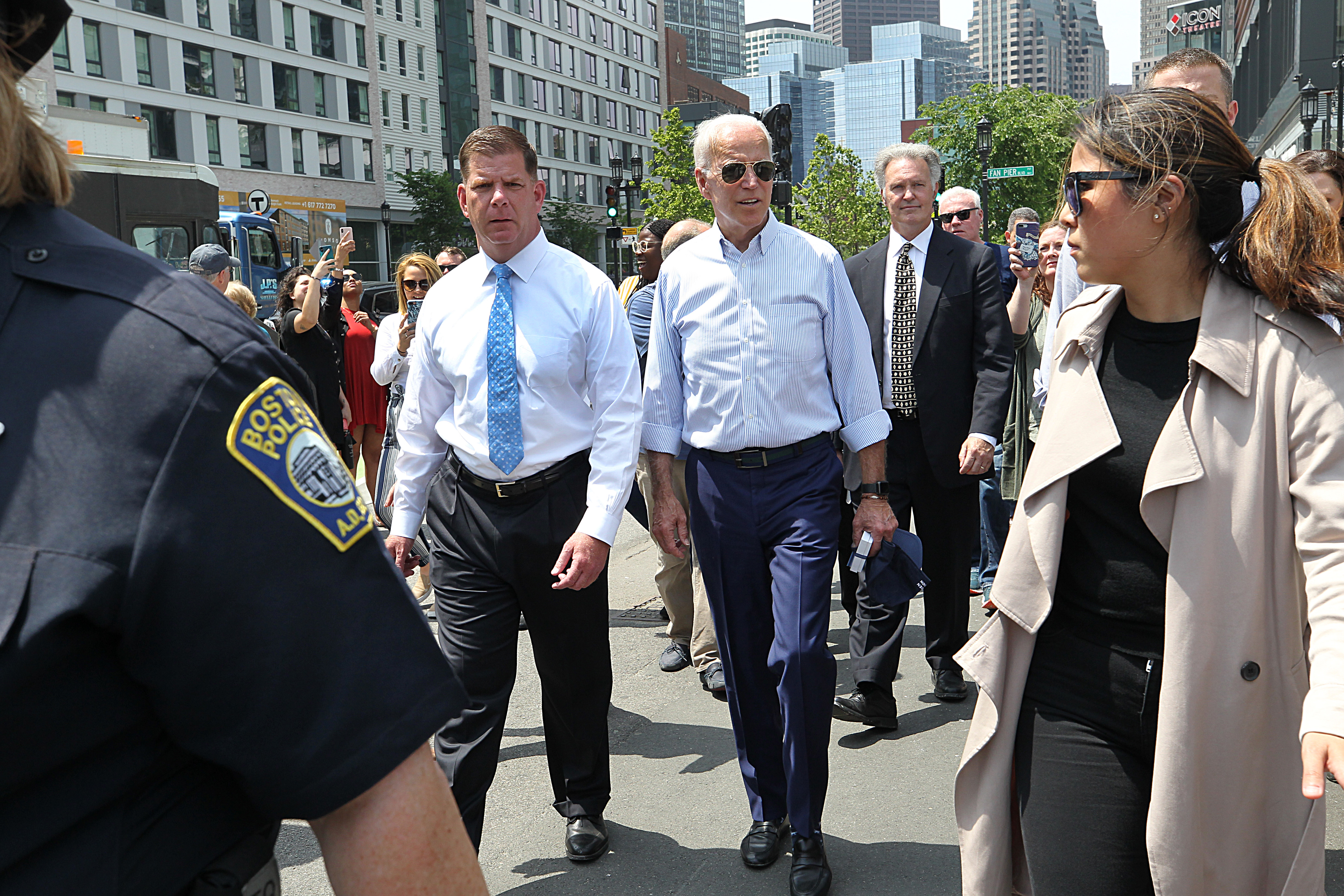President Joe Biden was in Boston Monday calling for Americans to come together in a push to find a cure for cancers, hoping a divided country can unify around a cause to save lives and improve the quality of life for patients and families.
The Biotechnology and Biomanufacturing Initiative that Biden created is aimed at ensuring the ingredients that pharmaceutical and other biotech companies use are made in the United States.
The speech, elaborating on the cancer "moonshot" announced in the Obama-Biden administration, will took place at the John F. Kennedy Presidential Library exactly 60 years after President Kennedy announced that the United States planned to put a man on the moon.
Get Boston local news, weather forecasts, lifestyle and entertainment stories to your inbox. Sign up for NBC Boston’s newsletters.
The goal, Biden said, is to end cancer once and for all — the president setting the threshold at cutting death rates by at least 50% in the next 25 years — and to do it through supporting research in U.S. He also announced a new executive order that will ensure biotechnology created in the country is also made in the country.
Home to companies like COVID vaccine creators Biogen and Moderna, the Boston area is one of the nation's top biotech hubs, with graduate from the area's top universities helping to fill rapidly expanding lab space all over the region.
Nearly 10% of all National Institutes of Health funding comes to Massachusetts, according to the Massachusetts Biotechnology Council, leading the nation on a per-capita basis.
Biden will draw attention to a new federally backed study that seeks evidence for using blood tests to screen against multiple cancers — a potential game-changer in diagnostic testing to dramatically improve early detection of cancers. He also planned other announcements meant to better the lives of those suffering from cancer.
Danielle Carnival, the White House cancer moonshot coordinator, told The Associated Press that the administration sees huge potential in the commencement of the blood diagnostic study on identifying and treating cancers.
"One of the most promising technologies has been the development of blood tests that offer the promise of detecting multiple cancers in a single blood test and really imagining the impact that could have on our ability to detect cancer early and in a more equitable way," Carnival said. "We think the best way to get us to the place where those are realized is to really test out the technologies we have today and see what works and what really has an impact on extending lives."
Biden seeks to rally the nation around developing treatments and therapeutics for the pervasive diseases that the Centers for Disease Control and Prevention rank as the second-highest killer of people in the U.S. after heart disease. Biden hopes to move the U.S. closer to the goal he set in February of cutting U.S. cancer fatalities by 50% over the next 25 years and to dramatically improve the lives of caregivers and those suffering from cancer.
In 2022, the American Cancer Society estimates, 1.9 million new cancer cases will be diagnosed and 609,360 people will die of cancer diseases.
The issue is personal to Biden, who lost his adult son Beau in 2015 to brain cancer. After Beau’s death, Congress passed the 21st Century Cures Act, which dedicated $1.8 billion over seven years for cancer research and was signed into law in 2016 by President Barack Obama.
Before the cancer "moonshot" speech Monday afternoon, Biden spoke at Boston Logan International Airport's Terminal E, which is being modernized, to discuss what the Bipartisan Infrastructure Law is doing for Americans. He noted that the demand for international flights has quadrupled in the 48 years since the terminal was built, leading to traffic jams on the tarmac.
"It's frustrating, it's inconvenient, it's bad for the environment and there's simply no reason for it. This is the United States of America, for God's sake!" Biden said.
He also linked the "moonshot" and the infrastructure investments, saying both are a return to the time when America did big things, after more recent failures of imagination.
Before flying back to Washington, Biden will attend a Democratic National Committee reception, according to his public schedule.
UMass Boston, which houses the JFK library, was holding classes remotely Monday because of Biden's visit. Boston and state police have advised the public about traffic impacts near the JFK Library in Dorchester and in downtown Boston Monday.
"The BPD advises all Boston residents and visitors to plan accordingly for any traffic disruptions from these events," Boston police said Sunday night.
The White House was positioning the president's creation of the Biotechnology and Biomanufacturing Initiative as more than just a way to help fight cancer and speed other health care innovations.
"It will enable us to reinvent America supply chains, transitioning away from chemicals that rely on oil towards cleaner, safer and more reliable alternatives that we make right here at home," a senior administration official told reporters.
Most of the country's companies that work in biotech do their manufacturing abroad, according to the White House, but Biden's order aims to build out a national infrastructure for that kind of manufacturing in the U.S. – in much the same way that Kennedy’s speech helped build out the aerospace industry that delivered Apollo 11 to the moon. He'll also announce that Renee Wegrzyn will be the first leader of ARPA-H, the biomedical innovation agency Biden created in March. Wegrzyn is an executive at Boston-based biotech company Ginkgo Bioworks who has previously worked on biotech at DARPA, the U.S. defense industry's innovation agency.
The Associated Press contributed to this report.



